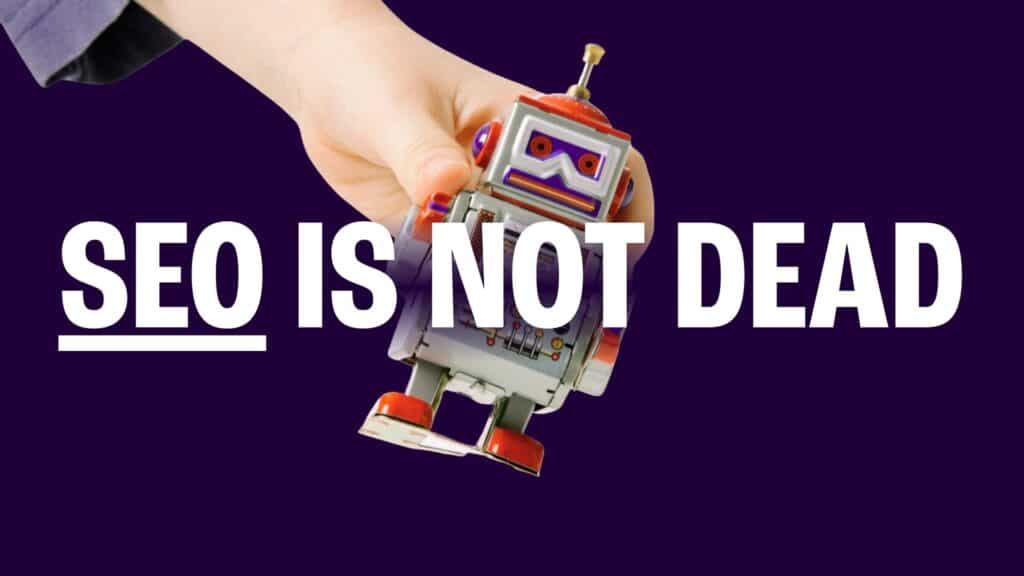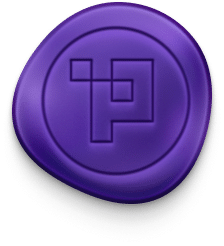SEO Isn’t Dead

How to Future-Proof Your Business in the Age of AI Search
TLDR: SEO isn’t dead – it’s evolving.
The landscape of search is shifting fast, but it’s not the end – it’s an evolution. Key takeaways include:
- AI answers now appear in 87% of Google searches
- Even top-ranking pages only show in AI results ~25% of the time
- The winning formula: clear, authoritative content that answers specific user questions
- Forget broad guides – target precision, not encyclopedias
- Technical basics still matter: allow AI crawlers, use schema markup, and keep HTML clean
- SEO isn’t dead – it’s becoming smarter, more contextual, and more competitive
- AI search systems reward content that’s useful to both humans and machines
- Businesses that adapt will thrive; those that don’t risk losing significant organic traffic
- In short: the game hasn’t ended, the rules just got more interesting
The Numbers Don’t Lie, AI Search Is Here to Stay
Let’s start with some reality-checking statistics that’ll make you sit up and pay attention. According to research by Authoritas, Google displays a Search Generative element for 86.83% of all search queries. That’s not a small portion of searches – that’s nearly everything your customers are looking for.
But here’s where it gets really interesting: keywords that trigger AI Overviews tend to be slightly longer in word count, and more likely to include clarifications, comparisons, or definitions – classic informational query shapes. Sound familiar? These are exactly the types of queries that savvy content creators have been targeting for years.
The data also reveals something crucial: websites ranked #1 on Google appear in AI search answers 25% of the time. This means traditional SEO isn’t dead, it’s actually feeding the AI beast. The better you rank traditionally, the more likely you are to appear in AI-generated responses.
What’s Really Changing? More Than You Think, Less Than You Fear
Here’s the truth that’ll either comfort or terrify you (depending on how well you’ve been doing your SEO homework) AI search systems are incredibly picky about content quality. Only 4.5% of generative URLs directly matched a Page 1 organic URL, which means AI isn’t just regurgitating the top results – it’s curating them.
This selectivity extends to how users behave too. A recent SparkToro study found that over 58% of Google searches now result in zero clicks, meaning most users find what they need without ever engaging with external websites. Before you panic, remember this: the users who do click through are now more qualified and engaged than ever before.
Research suggests that SGE is poised to affect over $40 billion per year spent by companies on search ads, with healthcare, ecommerce, and B2B technology industries feeling the biggest impact. But here’s the kicker – this disruption creates opportunities for businesses that adapt quickly.
The Content Revolution: From Pages to Answers
Traditional SEO focused on creating the “best page” comprehensive guides covering everything about a topic. AI search wants the “best answer” specific, focused responses to exact questions. This shift is fundamental and requires a complete rethink of content strategy.
Instead of asking “How do I rank higher?” start asking “How do I better serve users who have specific questions?” This mindset shift separates businesses that thrive from those that merely survive in the AI era.
The magic happens when you structure your content to serve both humans and machines. Clear headings, bullet points, and logical information architecture aren’t just good for user experience anymore – they’re essential for AI visibility. Clear titles, descriptions, dates, and schema.org markup help AI systems quickly understand your content.
Authority and Trust: The New Ranking Signals
Here’s something that should make every serious business owner smile: authority and trustworthiness have become the new ranking signals. This isn’t about gaming the system anymore, it’s about genuinely being the best at what you do.
AI systems are increasingly sophisticated at recognising expertise. They look for author credentials, published research, external citations, and real-world validation. Media mentions across trusted publications, schema-enriched pages with structured data, first-party research that establishes expertise, and expert quotes and branded citations all contribute to AI visibility.
This means that businesses with genuine expertise have a massive advantage. If you’ve been coasting on SEO tricks rather than building real authority, AI search will expose that faster than a poorly planned office Christmas party.
Technical Foundations: Making Your Content AI-Ready
The technical side of AI optimisation isn’t rocket science, but it does require attention to detail. Most importantly, you need to ensure AI crawlers can actually access your content. Many AI crawlers don’t handle JavaScript well, if at all. Logical content structure in plain HTML or markdown is ideal.
This means if you’re relying heavily on JavaScript for content delivery, you might be invisible to AI search engines. Server-side rendering, structured data markup, and clean HTML become critical for AI visibility.
One practical step every business should take immediately is implementing proper schema markup. By implementing schema markup, you increase the chances that future AI advancements will continue to recognise and categorise your site effectively. This includes product schema for ecommerce sites, FAQ schema for support content, and article schema for blog posts.
Beyond Google: The Multi-Platform Future
Here’s where things get really interesting and where many businesses are missing the boat entirely. AI search isn’t just about Google anymore. ChatGPT has become the 5th most visited site globally, with nearly 5 billion visits per month, and users are experimenting with multiple AI platforms for different needs.
Smart businesses are now optimising for what experts call “answer engine optimisation” (AEO) ensuring visibility across ChatGPT, Perplexity, Google’s AI Overviews, and other AI platforms. This requires thinking beyond traditional keyword targeting to focus on comprehensive, authoritative answers to real questions.
The opportunity here is massive. Digital marketing and SEO-related topics may start driving more visitors from AI search to websites than from traditional search by early 2028. Early adopters who nail AI optimisation now will have a significant competitive advantage.
The Pixite Approach: Practical Steps for AI Success
Based on our experience optimising client content for AI visibility, here’s what actually works:
Content restructuring is essential. Break down comprehensive guides into specific, question-focused sections. Each section should provide a complete answer to a specific query while maintaining logical flow to the broader topic.
Authority building remains crucial. Original research, expert bylines, and external citations signal to AI systems that your content deserves trust. We’ve seen clients with strong authority signals appear in AI responses even when competitors rank higher traditionally.
Technical optimisation can’t be ignored. Ensure your robots.txt allows key AI crawlers (GPTBot, ClaudeBot, PerplexityBot), implement comprehensive schema markup, and verify that your content loads quickly without JavaScript dependencies.
Multi-format thinking is becoming essential. AI systems increasingly prioritise the most useful format for each query, whether that’s text, video, or visual content. Build comprehensive digital strategies that cover multiple content formats rather than focusing solely on written content.
What This Means for Your Business Right Now
The businesses that thrive in this new landscape will be those that embrace both traditional SEO excellence and AI optimisation. This isn’t an either-or situation, it’s about expanding your strategy to cover the full spectrum of how people find information.
Start by auditing your top-performing content against AI search criteria. Are you providing clear, authoritative answers to specific questions? Is your content technically accessible to AI crawlers? Do you have the authority signals that AI systems trust?
The companies getting AI search right are seeing higher-quality traffic, better engagement metrics, and improved conversion rates. When users arrive at your site after interacting with AI-generated content, they’re already informed about your expertise and more likely to convert.
The Bottom Line: Embrace Evolution or Risk Extinction
SEO isn’t dead, it’s evolving into something more sophisticated, more user-focused, and frankly, more interesting than it’s ever been. The businesses that adapt to serve both human users and AI systems will dominate their markets.
The age of AI search has begun, and it’s creating unprecedented opportunities for businesses that understand how to play the new game. Traditional SEO skills remain valuable, but they need to be enhanced with AI optimisation strategies.
The question isn’t whether AI search will impact your business – it’s whether you’ll be ready when it does. The companies that start adapting now will own the search results of tomorrow. Those that wait will be left wondering where their traffic went.
Ready to future-proof your SEO strategy for the AI age? The evolution has begun, and there’s never been a better time to get ahead of the curve. After all, in the age of AI search, the algorithm is watching—and it definitely prefers businesses that speak both human and machine.
Want to ensure your business stays visible in the age of AI search? Our team specialises in future-proofing SEO strategies that work for both traditional search and AI platforms. Get in touch to discover how we can help your business thrive in the evolving digital landscape.
Info
Posted: August 1, 2025
Reading Time:7 minutes
Author
Table Of Contents

